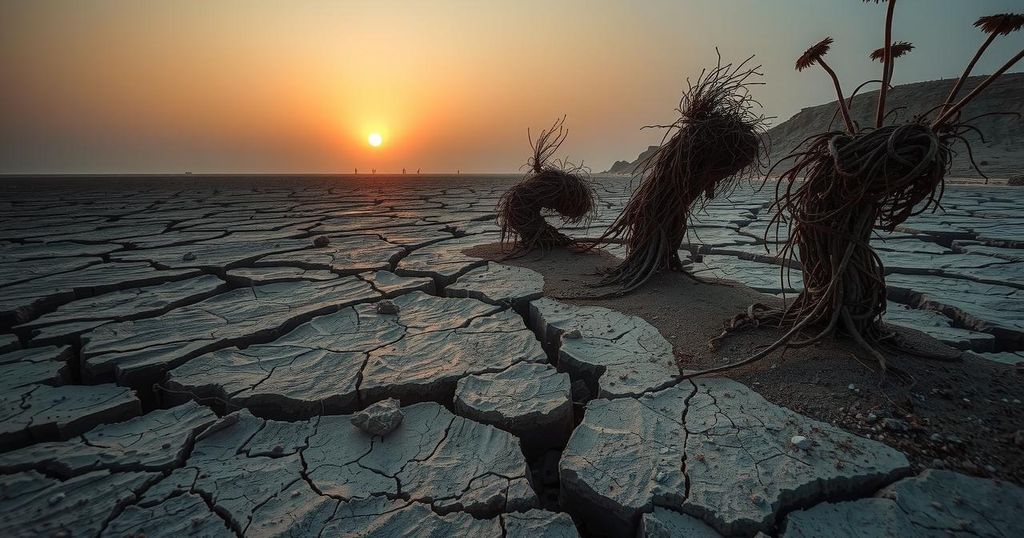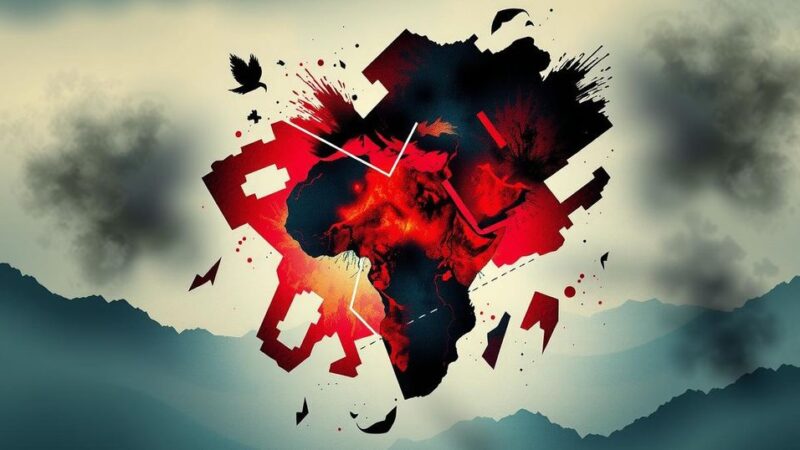A bishop from the DRC has declared the humanitarian situation in the eastern region catastrophic, citing severe violence from armed groups, notably the M23 rebels. Over 200,000 people have been displaced, with alarming reports of human rights violations emerging. Both governmental and religious leaders are calling for a national day of prayer, indicating a collective desire for peace amidst ongoing turmoil and suffering.
Monsignor Donatien Nshole, Secretary General of the Bishops’ Conference of the Democratic Republic of Congo (DRC), expressed grave concerns about the dire situation in the eastern region of the country, stating it is “catastrophic.” This assertion followed his meeting with Justice Minister Constant Mutamba on January 21, 2023. The region has witnessed rampant violence between the Rwanda-backed M23 rebels and government forces, causing the displacement of over 200,000 individuals. The United Nations has accused Rwanda of deploying 4,000 troops to aid the M23 in these conflicts, amid the presence of approximately 120 other armed groups in the region.
During his meeting with Minister Mutamba, Monsignor Nshole highlighted not only the crisis faced by soldiers but also the plight of displaced individuals and families who are homeless and living in the forest. He stressed the necessity for peace and urged for intensified prayers for those suffering amidst the violence. In recent developments, panic ensued in Goma, North Kivu Province, following reports that M23 rebels occupied nearby Sake, leading to a mass exodus of terrified residents.
Elie Mbulegheti, Director of Communications for Caritas Butembo-Beni, described the situation as complex, marked by widespread famine, mass displacement, and severe human rights violations. Access to essential services such as healthcare and housing has become increasingly difficult for vulnerable populations amid the ongoing conflicts. Reports from the International Red Cross indicate that hospitals are overwhelmed, with over 215 casualties treated in a Goma hospital in January alone.
Amnesty International released a critical report on January 19 detailing humanitarian law violations by both the Congolese Armed Forces and M23 rebels. This report alleges that both factions have utilized explosive weapons in civilian-populated areas, causing over 100 civilian fatalities and numerous injuries. Agnès Callamard, Secretary General of Amnesty International, emphasized that the heightened use of such weapons amidst a protracted conflict presents a concerning new development, exacerbating pre-existing human rights issues.
The eastern DRC conflict, which traces its roots to the aftermath of the Rwandan genocide, has resulted in over six million fatalities and countless displaced individuals since 1996. Diplomatic endeavors to end this conflict have largely failed, with recent negotiations stalled due to disagreements between DRC and Rwandan leaders. Both religious and governmental leaders have recognized the need for prayer to seek peace, with a national day of prayer scheduled for February 9, 2025, as a step towards reconciliation.
In summary, the ongoing violence in eastern DRC continues to invoke severe humanitarian consequences, with countless individuals suffering from displacements, violence, and violations of their rights. With both government and church leaders calling for prayer, there remains an urgent need for effective solutions to restore peace and alleviate the suffering of those in conflict zones.
The humanitarian crisis in the eastern Democratic Republic of Congo is one of the most pressing global issues, exacerbated by ongoing violence from various armed groups, particularly the M23 rebels, and their support from neighboring Rwanda. This conflict is deeply rooted in the historical complexities arising from the Rwandan genocide in 1994, creating a cycle of violence and displacement. The region’s rich mineral resources have further complicated the conflict, drawing in numerous armed factions and international interests, ultimately leading to widespread suffering among civilians and a breakdown of essential services. The joint recognition of the need for prayer by both church and state signifies a desperate call for peace amid escalating humanitarian crises.
The eastern DRC’s conflict has escalated to catastrophic proportions, with significant impacts on civilians, including mass displacements and loss of lives. Despite international awareness and local attempts to address the crisis, effective diplomatic resolutions remain elusive. Initiatives for peace, underscored by calls for unity in prayer from both church and governmental leaders, reflect the urgency to alleviate the suffering and restore stability in the region. Continued efforts are necessary to confront the complex dynamics fueling the conflict and to provide fundamental support to affected populations.
Original Source: cruxnow.com







